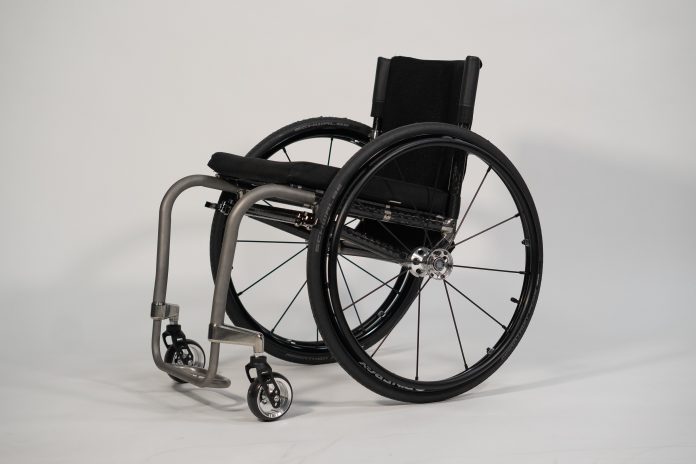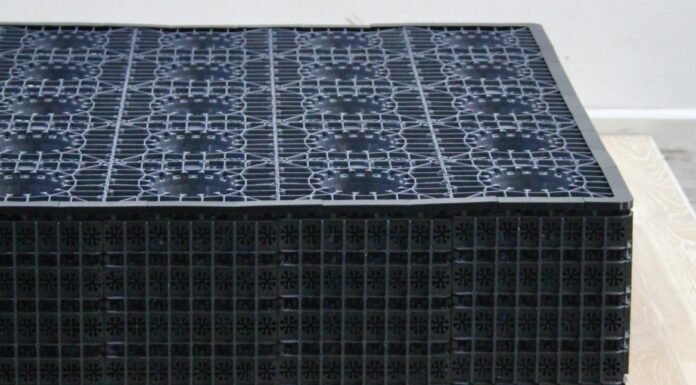
Media Release
A team led by an award-winning Australian design engineer is preparing to deliver a breakthrough in tailorability and comfort for wheelchair users, assisted by an Advanced Manufacturing Growth Centre (AMGC) co-funded grant.
Rove Concepts has completed the first pre-production prototyping of its groundbreaking wheelchair, which uses advanced materials such as 3D printed titanium and carbon fibre to deliver superior levels of comfort, weight savings, and overall performance.
“We aim to bring a high-level of chair quality to the masses, rather than to just elite athletes,” explained Ryan Tilley, co-founder of Rove.
“Having the lightest setup and ergonomics for a wheelchair from the outset is critical. Get it wrong and users will suffer from pressure sores, muscle pain and shoulder wear if the chair isn’t perfect, added Keith Klein, Co-Founder at Rove and the father of a wheelchair user.
“Users push themselves around for as many as 12 hours a day, day after day, week, month, year and decade. If you can lighten the load, it’s an incredible benefit.”
The collaborative project is supported through a $180,000 Federal Government grant administered by AMGC. Project participants include Rove, wheelchair and assistive technology specialist Adaptive Concepts, Australian National University’s material testing and validation experts, and bespoke road bike maker Bastion Cycles.
“Australian manufacturers like Rove are realising that ‘traditional’ sectors and products are ripe for disruption. Enabled by incredible design and engineering talent, Rove is setting a new standard in delivering to market an exceptional product and service – which can go global,” explained Dr Jens Goennemann, Managing Director, AMGC.
“In this case, Rove, collaborating with Bastion, has opened up a unique way of manufacturing wheelchair frames. By bringing them together has been a powerful thing. It is exciting to see Bastion’s knowledge of lightweight 3D printed lugs, previously applied to bikes, find a place in a new product, and one with incredible promise.”
Using 3D printed lugs, carbon fibre tubing and other aero-space materials means strength benefit and weight savings of close to 4 kilograms per chair could be achieved, a vast improvement over traditional-type welded tube frames of steel or aluminium alloy.
The use of these advanced techniques can see a customer receive their ride within four weeks. This is compared to the typical 12-week order cycle. Importantly, the rider will experience a much higher level of customisability and satisfaction.
“By changing the angle of lugs and the length of the tube you can create a completely custom geometry,” explains Tilley.
“It is post-production customisable as well. The feedback from our users and our occupational therapists is that this is a massive boon.”
The company plans to unveil a production model of its product in May at the 2021 at the ATSA Independent Living Expo.
Rove follows on from Tilley’s earlier business endeavour Gecko Traxx, of which Tilley is co-founder. Gecko’s foldable over-tyre invention has earned him awards including the winner of the Australian James Dyson Award and selected as the international runner-up in the same competition, as well as Good Design Awards in 2019.
“Manufacturing, here as in other countless examples, can improve the lives of many – simply by listening and delivering smart products to a global audience,” offered Dr Goennemann.
“There are an estimated 75 million-plus wheelchair users, globally. The impact of Australian ingenuity to make a difference is immense,” said Goennemann.


















